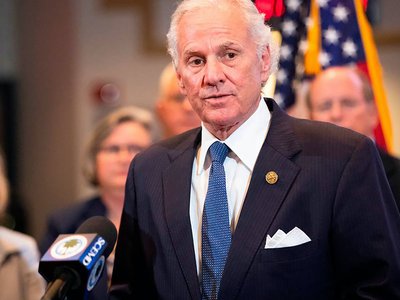We’re in an energy crisis, and despite what you hear from the Biden administration, the answer isn’t for cash-strapped Americans to run out and buy an electric vehicle. It’s to support home-grown energy sources, especially biofuels.
Nationally, the price at the pump is now pushing $5 per gallon — and it’s likely to go even higher. For many working families, prices this high are nothing short of catastrophic.
If you listen to President Joe Biden, Russia’s invasion of Ukraine is solely to blame. That’s clearly wrong. It’s the president's policies that kicked off the effort to undermine America’s domestic energy production.
On his first day in office, the president canceled the Keystone XL pipeline, sending the message that domestic production wasn’t wanted or needed. Since then, he has banned new oil and gas development on federal lands and worked to erect needless regulatory hurdles to energy permitting — all the while letting Russia’s Nord Stream 2 pipeline go with a free pass.
Taken together, short-sighted policies like these have undermined our energy independence and maximized the leverage brutal dictators like Putin hold over Western nations.
Biden’s only answer is the supposed promise of electric vehicles. That’s not a solution. For starters, Americans who can’t afford gas can’t exactly run out and buy a new EV. And even then, we shouldn’t replace dependence on foreign oil with dependence on foreign-made batteries.
The immediate and long-term solution to America’s latest energy crisis is growing in the fields of Midwestern states like Iowa: biofuels. Produced by farmers who grow corn and soybeans, biofuels are already a trusted staple for American consumers. And it’s not hard to see why. Ethanol regularly costs 70 to 80 cents less than a gallon of gasoline and is every bit as reliable. More ethanol means lower fuel prices.
And because ethanol is made from corn (and biodiesel from soybeans), it’s also a renewable fuel, one with emissions 46% lower than gasoline. Yet in all Biden’s talk of a clean energy future, biofuels remain absent.
Today, most gasoline sold in the United States is blended with 10% ethanol, a composite fuel known as E10. It gives consumers access to a more affordable option at the pump produced by American companies using crops grown by American farmers.
But even higher blends are available. E15, which contains 15% ethanol, is compatible with every car, truck, and SUV manufactured after 2001 — 97% of all vehicles on the road today. Its higher ethanol content makes it even more affordable than E10.
Unfortunately, E15 is currently hampered by unscientific, illogical federal regulations that make it unnecessarily difficult to sell, especially during warmer months. This needless red tape is forcing producers in Iowa and around the country to operate well under capacity, leaving reliable, home-grown fuel on the table at the worst possible moment.
It’s time for the Environmental Protection Agency to use its regulatory authority to authorize the year-round sale of E15 and lift barriers to the sale and production of higher ethanol blends. With American consumers desperate for affordable fuel that can be produced here at home — rather than imported from foreign adversaries — there is no good reason for the EPA to continue stifling ethanol production and consumption.
All the oil imports we’re forfeiting from Russia could be replaced immediately if biofuel producers were empowered to operate at full capacity. Other renewable fuels and even oil and gas drilling will take time to ramp up; this is a solution we can start implementing today.
From the beginning of this crisis, Biden has seemed to react to world events instead of driving them; this is his opportunity to break that pattern. America has what it needs to address its energy crisis and bring down prices at the pump, but it’s up to the president to seize the opportunity. He can do so by unleashing American biofuels.
Kim Reynolds is governor of Iowa.






